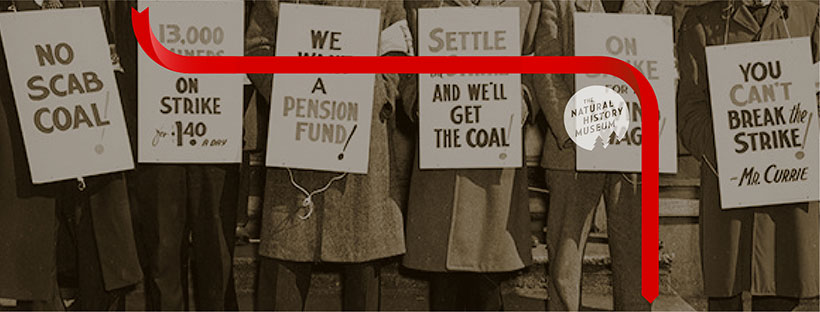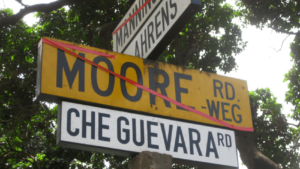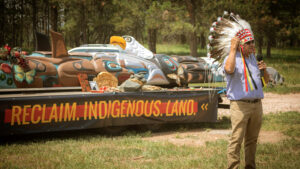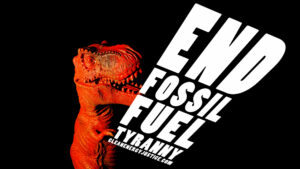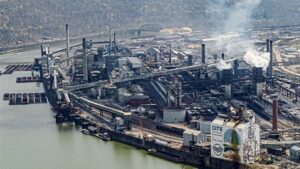@ The Carnegie Museum of Art’s theater
Thursday, Oct 24, 2019
Co-sponsors: Carnegie Museum of Art + Carnegie Museum of Natural History
This is a free event–it is not necessary to purchase a ticket to the museum.
6:00–6:30pm: live performance of old miners movement songs from Appalachia by Joe Uehlein
6:30–8:30pm: panel discussion
LIVE: “Power Beyond Extraction: A Buried History” 6:00–6:30pm: live performance of old miners movement songs from Appalachia by Joe Uehlein6:30–8:30pm: panel discussionThe history of Appalachia is tightly bound to the history of coal, and the material and sentimental attachments to this history presents a predicament for the environmental movement. On one hand, the history of coal is a history of exploitation of both land and labor. On the other, it is the history of the struggle of workers to organize for dignified work, fair pay, and safe working conditions. How should the environmental movement relate to workers whose livelihoods are tied to fossil fuel extraction? One answer has emerged with the concept of a just transition, which holds that in the transition to clean energy, no worker will be left behind. What can be learned from the buried history of labor militancy borne inside the mine? By approaching the history of coal as a history of labor, this panel asks how the long struggle for work with dignity can inform a just transition.SPEAKERSShaun Slifer, Creative Director, West Virginia Mine Wars MuseumKipp Dawson, former coal miner, union member, teacherJoe Uehlein, Founding President, Labor Network for SustainabilityVeronica Coptis, Executive Director, Center for Coalfield Justice
Posted by The Natural History Museum on Thursday, October 24, 2019
The history of Appalachia is tightly bound to the history of coal, and the material and sentimental attachments to this history presents a predicament for the environmental movement. On one hand, the history of coal is a history of exploitation of both land and labor. On the other, it is the history of the struggle of workers to organize for dignified work, fair pay, and safe working conditions. How should the environmental movement relate to workers whose livelihoods are tied to fossil fuel extraction? One answer has emerged with the concept of a just transition, which holds that in the transition to clean energy, no worker will be left behind. What can be learned from the buried history of labor militancy borne inside the mine? By approaching the history of coal as a history of labor, this panel asks how the long struggle for work with dignity can inform a just transition.
SPEAKERS
Shaun Slifer, Creative Director, West Virginia Mine Wars Museum
Kipp Dawson, former coal miner, union member, teacher
Joe Uehlein, Founding President, Labor Network for Sustainability
Veronica Coptis, Executive Director, Center for Coalfield Justice
BIOS
Shaun Slifer is the creative director and exhibition designer for the West Virginia Mine Wars Museum. He is a Pittsburgh-based artist, writer, scrimshander, museum professional, and self-taught historian whose primary concern is the oppression of currently-dominant historical narratives. Shaun has worked with Street Art Workers and the Howling Mob Society, and is a founding member of the Justseeds Artists’ Cooperative. Shaun has exhibited internationally in a variety of museums, galleries, and nonprofit spaces, as well as non-authorized public settings.
Kipp Dawson worked in the mines in Washington County, Pennsylvania from 1979-92, during which time she was an active member of the United Mine Workers (UMWA Local 1197, District 5) and participated in the women miners’ organization The Coal Employment Project. In both capacities, she was able to build connections with coal miners across the US and internationally, including Canada, Britain during the time of their historic 1984 strike, and South Africa while it was still under apartheid. Kipp is an “amateur people’s historian” of mining history, and until recently, a teacher in Pittsburgh public schools. Recently retired, she is proud to continue striking, this time with youth-led climate strikers.
Joe Uehlein is the founding president of the Labor Network for Sustainability. In the early 1970’s he worked in an aluminum mill in Mechanicsburg, PA as a member of the United Steelworkers of America, and on heavy and highway construction projects in Central Pennsylvania as a member of the Laborer’s International Union of North America. He is the former secretary-treasurer of the AFL-CIO’s Industrial Union Department and former director of the AFL-CIO Center for Strategic Campaigns. Joe served as secretary to the North American Coordinating Committee of the International Federation of Chemical, Energy, and Mine Workers Unions (ICEM). He also served on the United Nations commission on global warming from its inception in 1988 until 2003. Joe is a founding board member of Ceres (Coalition for Environmentally Responsible Economies), a member of the National Advisory Board of the Union of Concerned Scientists, and a board member of the US Climate Action Network (USCAN). He is also a musician, a member of the American Federation of Musicians, and co-founder of Labor Heritage Foundation.
Veronica Coptis is Executive Director of the Center for Coalfield Justice in Pennsylvania, an organization working for economic and environmental justice with rural communities on the frontlines of fossil fuel extraction through advocacy, education, and organizing. She grew up in western Greene County near the Bailey Mine Complex and currently lives in the eastern part of the county, surrounded by shale gas wells. Veronica has organized with Mountain Watershed Association and has worked on bridging the urban-rural divide with a particular focus on connecting oppressed communities. She is currently chair for the Pennsylvania Chapter of the Sierra Club.

